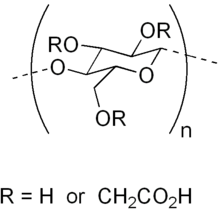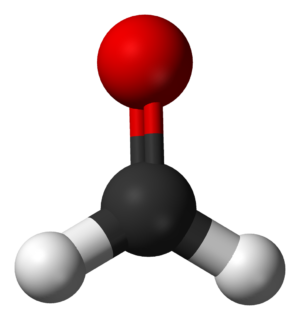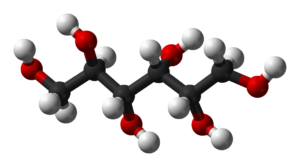
CMC (CARBOXYMETHYL CELLULOSE SODIUM)
 Carboxymethyl cellulose sodium, often abbreviated as CMC or sodium CMC, is a versatile chemical compound used in various industries, including food, pharmaceuticals, cosmetics, and more. It is derived from cellulose, which is a natural polymer found in plant cell walls. Here are some key details about carboxymethyl cellulose sodium:
Carboxymethyl cellulose sodium, often abbreviated as CMC or sodium CMC, is a versatile chemical compound used in various industries, including food, pharmaceuticals, cosmetics, and more. It is derived from cellulose, which is a natural polymer found in plant cell walls. Here are some key details about carboxymethyl cellulose sodium:
Chemical Structure: Carboxymethyl cellulose sodium is a water-soluble sodium salt of carboxymethyl ether of cellulose. It is a long-chain polymer composed of repeating glucose units with carboxymethyl groups attached to some of the hydroxyl groups.
Molecular Formula: (C6H10O5)n – [C6H7O2(OH)2CH2COONa]m, where n represents the number of glucose units in the cellulose chain, and m represents the degree of substitution (DS) with carboxymethyl groups. Functionality: CMC is known for its ability to modify the viscosity and flow properties of aqueous solutions. It acts as a thickener, stabilizer, and texturizing agent.
Application
CMC is used primarily in foods, drugs and cosmetics as a viscosifier, emulsion stabilizer, thickener and to improve texture. The main applications of technical grade are in textile warp sizing and paper processing. CMC is also used in detergent as a antiredeposition agent, textile warp-sizing aid, adhesives, latex paints and polishes.
| PHYSICAL STATE | free flowing white to off-white powder |
|---|---|
| SPECIFIC GRAVITY | 1.59 |
| SOLUBILITY IN WATER | soluble |
| SOLVENT SOLUBILITY | Practically insoluble in acetone |
| pH | 7 – 10 (1% sol.) |
| AUTOIGNITION | 300 C |
| STABILITY | Stable under ordinary conditions |





Reviews
There are no reviews yet.